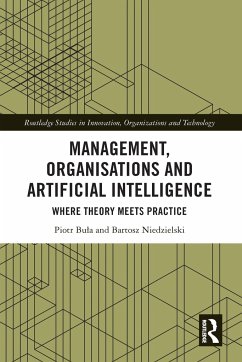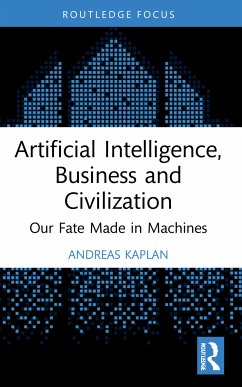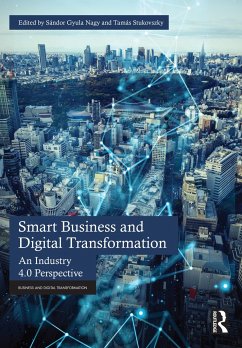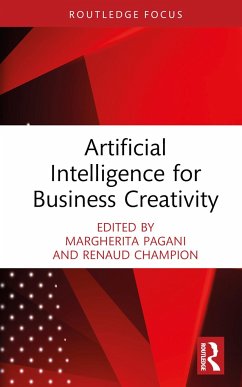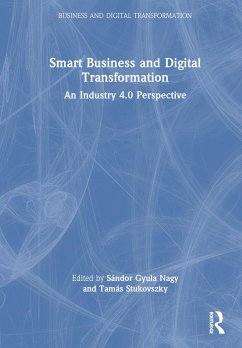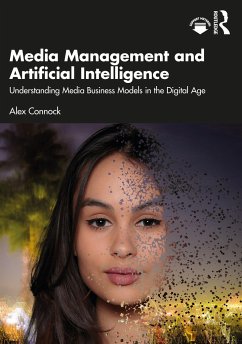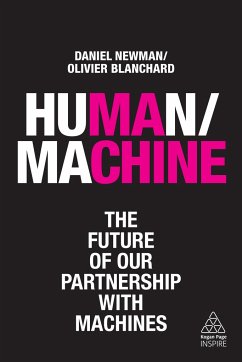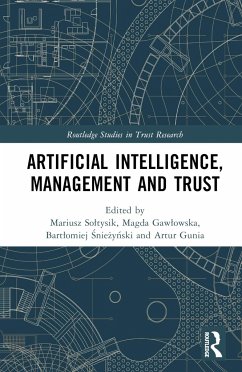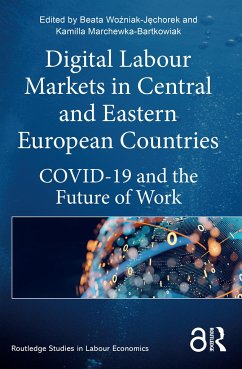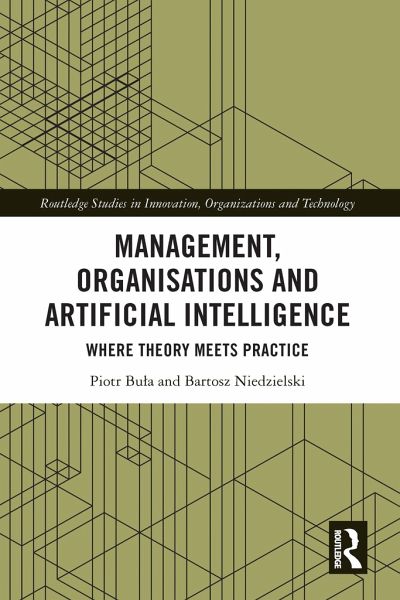
Management, Organisations and Artificial Intelligence
Where Theory Meets Practice
Versandkostenfrei!
Versandfertig in 6-10 Tagen
45,99 €
inkl. MwSt.

PAYBACK Punkte
23 °P sammeln!
This book combines academic research with practical guidelines in methods and techniques to supplement existing knowledge relating to organizational management in the era of digital acceleration. It offers a simple layout with concise but rich content presented in an engaging, accessible style and the authors' holistic approach is unique in the field.From a universalist perspective, the book examines and analyzes the development of, among others, Industry 4.0, artificial intelligence (AI), AI 2.0, AI systems and platforms, algorithmics, new paradigms of organization management, business ecosys...
This book combines academic research with practical guidelines in methods and techniques to supplement existing knowledge relating to organizational management in the era of digital acceleration. It offers a simple layout with concise but rich content presented in an engaging, accessible style and the authors' holistic approach is unique in the field.
From a universalist perspective, the book examines and analyzes the development of, among others, Industry 4.0, artificial intelligence (AI), AI 2.0, AI systems and platforms, algorithmics, new paradigms of organization management, business ecosystems, data processing models in AI-based organizations and AI strategies in the global perspective. An additional strength of the book is its relevance and contemporary nature, featuring information, data, forecasts or scenarios reaching up to 2030. How does one build, step by step, an organization that will be based on artificial intelligence technology and gain measurable benefits from it, for instance, as a result of its involvement in the creation of the so-called mesh ecosystem? The answer to this and many other pertinent questions are provided in this book.
This timely and important book will appeal to scholars and students across the fields of organizational management and innovation and technology management, as well as managers, educators, scientists, entrepreneurs, innovators and more.
From a universalist perspective, the book examines and analyzes the development of, among others, Industry 4.0, artificial intelligence (AI), AI 2.0, AI systems and platforms, algorithmics, new paradigms of organization management, business ecosystems, data processing models in AI-based organizations and AI strategies in the global perspective. An additional strength of the book is its relevance and contemporary nature, featuring information, data, forecasts or scenarios reaching up to 2030. How does one build, step by step, an organization that will be based on artificial intelligence technology and gain measurable benefits from it, for instance, as a result of its involvement in the creation of the so-called mesh ecosystem? The answer to this and many other pertinent questions are provided in this book.
This timely and important book will appeal to scholars and students across the fields of organizational management and innovation and technology management, as well as managers, educators, scientists, entrepreneurs, innovators and more.





